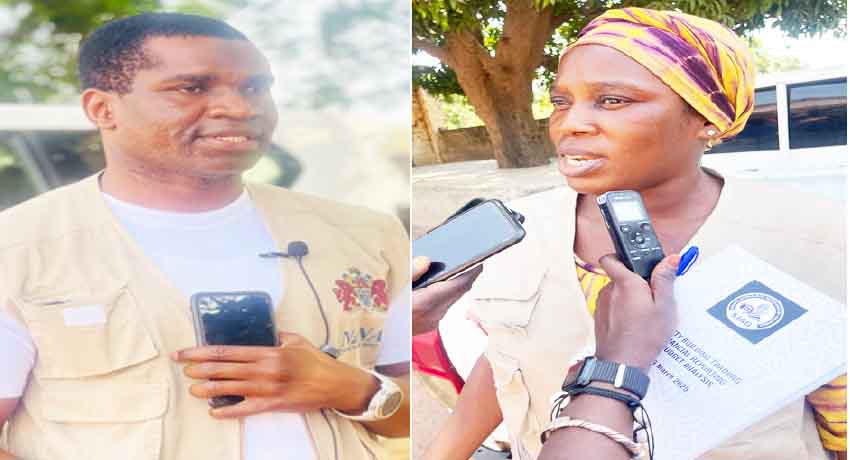By Kumba Leigh
The National Nutrition Agency (NaNA) and partners have commenced a roll-out of another phase of the Nafa cash transfer to extreme poor households in Nioro Jataba, Sangajor in Foni Kansala; Bantanjang in Foni Bondali; and Jataba in Kiang West, LRR, under The Gambia Resilience, Inclusion, Skills and Equity (RISE) Project.
Nafa cash transfer is one of the social assistance activities under the RISE project, initiated by the Government of The Gambia and supported by the World Bank.
Project officials described it as a landmark initiative in the history of social safety net programmes in the country, and believed it will be the biggest cash transfer ever witnessed in the country.
The project seeks to build resilience of the extreme poor in terms of food security, entrepreneurship, creating businesses, eradicating sexual and gender-based-violence, among others.
The Nafa programme provides cash to beneficiaries as well as builds their capacity through Social and Behavioural Change Communication (SBCC).
Recently, project implementing officials, including pay focal points, interfaced with direct beneficiaries in a well-organised and coordinated manner in making payments. Each beneficiary after verification, is paid D3000 for the first instance for a period of two months and will subsequently be receiving a sum of D3000 every three months for a duration of thirty-six months.
In an interview, Mr Ousman Dem, Programme Manager, Social and Behavioural Change Communications, at NaNA, and one of the pay focal points, explained the scope of the project. He said the Nafa programme has two activities – the cash transfer, done monthly, and social and behavioural change communication activities. “The cash transfer is made to the extremely poor households, which is 1,500 per month and this is delivered on bi-monthly basis, making it 3,000 dalasi”.
He said the project was initially piloted in three forest districts of The Gambia - Foni Bintang, Wuli West and Nianija, and subsequently rolled out to the remaining 17 districts making it 20 forest districts in The Gambia.
Mr Dem revealed that the RISE project would be expanded and this will include additional districts, which would require a nationwide coverage of 42 districts in The Gambia and two municipalities.
“There are sixteen thousand, nine hundred and sixty-six beneficiaries and the RISE project intends to add additional 20 thousand beneficiaries, and these people would also benefit from 18 circles making it 36 months like it is with the current beneficiaries,” the programme manager further explained.
On the SBSC, Mr Dem said the objective is to address poverty, arguing that one cannot address poverty in the absence of social and behavioural change education.







